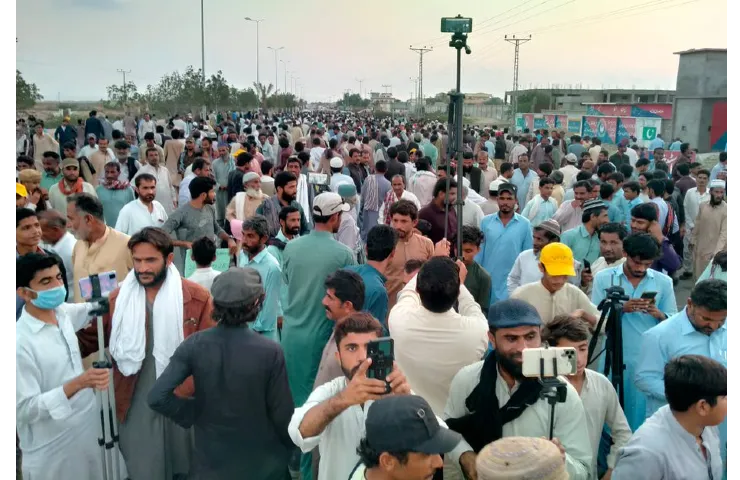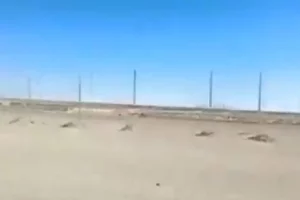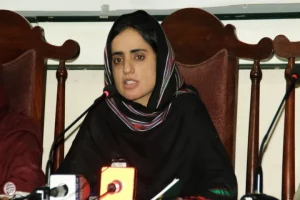Pakistan keeps finding unique ways to harass its estranged Baloch community. The Pakistani establishment—the military and the spy agencies, has been settling in myriad ethnicities from the region in the sparsely-populated Balochistan.
The Baloch, who have been battling enforced disappearances of their students and women, dead bodies of brutally tortured youth strewn across the Baloch desert and hills, a total deprivation of the general populace, human development parameters that match those of Sub-Saharan Africa and resource exploitation are now protesting against domiciles being made for people from other parts of the country and even Afghanistan.
People of diverse ethnicities like Punjabis, Pashtuns, Mohajirs and even the Hazaras from Afghanistan are being settled in the vast emptiness of Balochistan—a region that touches Afghanistan and Iran to its west and opens up to the vital Arabian Sea to the south.
Sobdar Baloch, human rights activist and member of the Free Balochistan Movement (FBM) says that by settling outsiders, Pakistan is trying to ensure that the Baloch population is reduced to a minority. He says: “Today if a Baloch person goes to the National Database & Registration Authority (NADRA) for getting an identity card made, the government will not make their identity cards. These are cards exactly like the Aadhar cards in India. But for people from outside Balochistan, these cards will be made in a few days”.
Medical Students of Khulo in a press conference today in Quetta warned for huge round of Protests if the fake domicile of Non-Local candidates R not canceled,Students ask officials to take notice as Kholu is a backward ares of Balochistan,This is an unjust with D people of D area pic.twitter.com/HsLe3Rioy2
— Zubair Baloch (@Zubair_Bal0ch) January 21, 2021
Every big attempt by the Pakistani authorities to provide fake domiciles and local certificates to communities from outside has invited protests from the marginalised Baloch people. A couple of years back, the people launched the #BalochistanRejectsBogusDomiciles campaign on social media. The campaign ran for weeks with students and the civil society fuelling the debate.
Sobdar puts the blame on the Pakistani spy agency ISI, which he says is trying to pre-empt future possibilities of a referendum being held in Balochistan. He says: “The scale of the domicile issue is very large and secretive. Around 2005, Pakistani agencies sent a large number of informers in the guise of labourers, barbers and laundrymen. These people were sent to Baloch inhabited areas to spy on the local people”.
A touchy issue with the Baloch people, protests and violence broke out in September 2021 after locals in Barkhan district launched a strike to protest against the issuance of bogus domicile certificates. The Baloch people resent the issuance of fake and bogus domiciles as they are left out of jobs and scholarships.
People have taken the issue to the Balochistan High Court (BHC) where the court found thousands of fake and bogus domiciles across the province.
Consistent efforts by Baloch NGOs have led to the matter being raised in the Baloch provincial assembly as well as the Pakistani parliament. However, little has happened on the issue.
The once sleepy fishing city of Gwadar on the Arabian Sea turned into an investment hotspot after the Chinese fired up the China Pakistan Economic Corridor (CPEC). The enormous Chinese investment into the port town led to an influx of people from other parts of Pakistan. The local Baloch feel deprived as they are not recruited in jobs under the CPEC in Balochistan.
Though corruption is a major driver leading to fake domiciles and local identity cards, it has only heightened suspicion against Pakistan’s intentions among the Baloch community.
Sobdar alleges that Pakistan has deployed many ways to convert them into a minority.
He says: “Students from Punjab are sent to Balochistan universities on scholarships and people from outside the province are given positions in government jobs and civil services. Once they are given local identity cards, they avail government facilities, buy property, land and settle down in Balochistan. This also harms the progress and development of the native Baloch people”.
He points out to the large number of Hazaras from Iran and Afghanistan who have made Balochistan’s capital Quetta their home. “The Hazara community living in Quetta had come from Iran. They obtained local domiciles, bought properties from the local Baloch and now they are given positions in the Pakistani army, police, the Frontier Corps and even the civil administration”.
This is the fear that consumes the Baloch community.
Read More:
After the Baloch and Sindhis, now Pakistan's Shias fight against 'enforced disappearances'




















